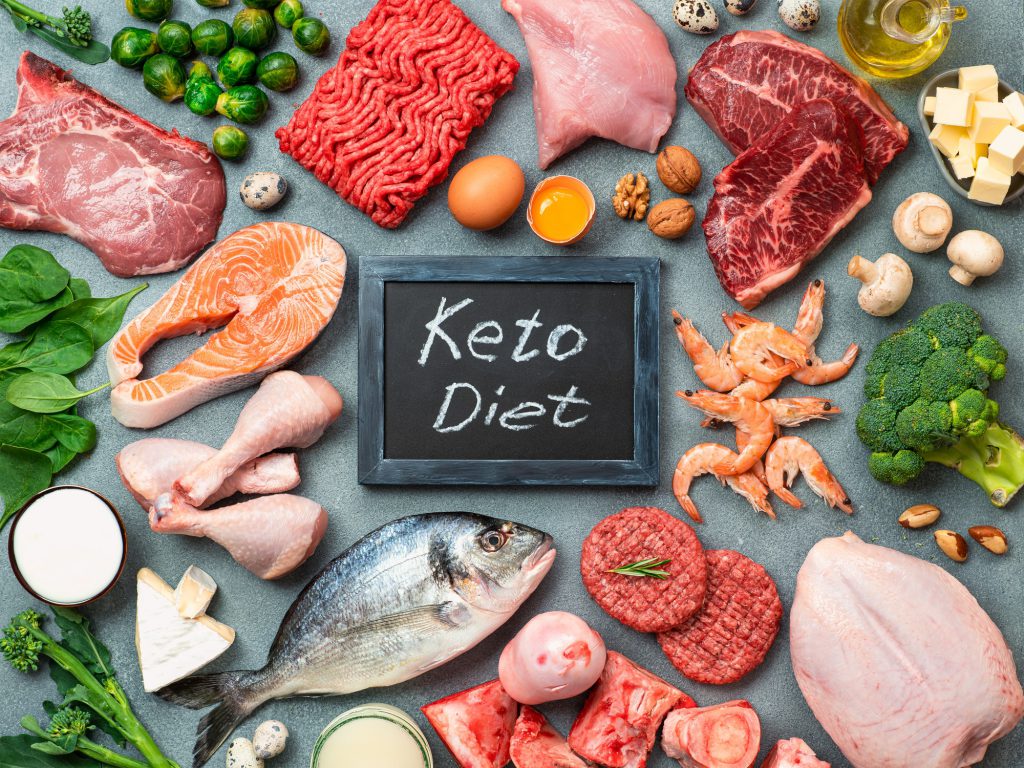Low-carb, high-fat eating strategies have gained massive attention over the past decade, and one of the most talked-about approaches is the ketogenic diet. While it’s become synonymous with weight loss and rapid transformation, few truly understand how it functions inside the body. If you’ve ever asked, “how does a ketogenic diet work?”, you’re not alone.
In this article, we break down the biological processes behind ketosis, explore how this diet impacts energy production, and look at the key benefits and potential drawbacks—backed by research, facts, and metabolic science.

What Is a Ketogenic Diet?
At its core, the ketogenic diet is a macronutrient-focused eating pattern. It drastically reduces carbohydrate intake and increases dietary fat while maintaining moderate protein levels. The standard breakdown is:
- 70–75% fat
- 20–25% protein
- 5–10% carbohydrates
By altering your intake in this way, the body shifts from using glucose (from carbs) as its primary energy source to burning fat instead.
The Shift from Glucose to Ketones
The human body typically uses glucose, derived from dietary carbohydrates, to fuel most bodily functions. However, when carbohydrate intake is significantly restricted (typically under 50 grams per day), glucose stores become depleted.
In response, the liver begins producing ketones—small molecules derived from fatty acids. These ketones, particularly beta-hydroxybutyrate (BHB), serve as an alternative energy source, especially for the brain, which cannot use fat directly for fuel.
This metabolic shift is called ketosis.
Key Mechanisms: How the Ketogenic Diet Works
Let’s explore what happens in the body when you adopt this way of eating:
1. Depletion of Glycogen Stores
Carbohydrates are stored in the body as glycogen in muscles and the liver. These reserves bind to water—approximately 3–4 grams of water per gram of glycogen. When you stop eating carbs:
- Glycogen stores are rapidly used up.
- The body releases excess water, often leading to initial rapid weight loss.
This explains why many people see a noticeable drop in weight during the first week of this diet—it’s largely water loss.
2. Increased Fat Oxidation
Once glycogen is depleted, the body ramps up fat metabolism. It breaks down stored fat and dietary fat into fatty acids, which the liver then converts into ketones.
- Acetoacetate – the initial ketone produced
- Beta-hydroxybutyrate (BHB) – the most efficient and stable energy ketone
- Acetone – a byproduct that exits through breath and urine
This process increases the body’s reliance on fat as a fuel source, effectively turning it into a fat-burning machine.
3. Stable Blood Sugar and Insulin Levels
Without constant glucose from carbs, blood sugar levels become more stable. Additionally, insulin—a hormone that regulates glucose and fat storage—drops significantly.
Lower insulin levels:
- Reduce fat storage
- Promote fat breakdown
- Help prevent insulin resistance, a common precursor to type 2 diabetes
4. Appetite Regulation
Research shows that ketones can suppress the hunger hormone ghrelin (1). People often report feeling fuller and eating less without trying. This natural appetite control makes it easier to maintain a calorie deficit and support weight loss goals.
Health Benefits Backed by Science
Numerous studies have explored how a ketogenic diet affects the body over time. Here are some of the most well-supported benefits:
1. Weight Loss
The primary reason many try this diet is for fat loss. Meta-analyses have shown that low-carb, high-fat diets often lead to more significant weight loss than traditional low-fat diets (2).
This is due to:
- Reduced hunger
- Improved fat oxidation
- Muscle preservation through sufficient protein
2. Improved Blood Sugar Control
The ketogenic diet may be especially beneficial for individuals with type 2 diabetes or insulin resistance. It helps:
- Lower fasting glucose levels
- Reduce HbA1c (long-term blood sugar marker)
- Decrease insulin requirements (3)
3. Enhanced Mental Clarity
Ketones are a cleaner, more stable energy source for the brain. Many users report:
- Less brain fog
- Improved focus
- Better mood regulation
BHB, in particular, crosses the blood-brain barrier and supports neurological functions (4).
4. Reduced Inflammation
Emerging research suggests that ketosis may lower systemic inflammation, partly due to ketones’ role in reducing oxidative stress (5). This could have implications for autoimmune conditions and chronic pain syndromes.
Potential Challenges and Considerations
While this eating pattern offers many benefits, it’s not without possible drawbacks. Here’s what to be aware of:
1. The Keto Flu
During the first few days, some people experience:
- Fatigue
- Headaches
- Nausea
- Brain fog
This is typically due to electrolyte imbalance and dehydration. Drinking water and supplementing with magnesium, sodium, and potassium can help.
2. Nutrient Deficiencies
Restricting many fruits, grains, and legumes can limit intake of certain vitamins and minerals. To avoid deficiencies:
- Eat a variety of low-carb vegetables
- Consider supplements as needed
- Focus on nutrient-dense whole foods
3. Sustainability and Social Impact
The diet can be restrictive and may not suit everyone long-term. Eating out, attending social events, or maintaining variety in meals can be challenging.
It’s essential to personalize the diet to your lifestyle and be realistic about adherence.
Who Should Avoid the Ketogenic Diet?
While generally safe for healthy individuals, some people should consult a healthcare provider before starting:
- Individuals with liver or kidney disease
- People with gallbladder issues
- Those on medications for diabetes or blood pressure
- Pregnant or breastfeeding women
Final Thoughts
So, how does a ketogenic diet work? In short, it shifts the body’s metabolism from carbohydrate dependence to fat-burning mode. By producing ketones through fat breakdown, the body fuels itself more efficiently while stabilizing blood sugar and insulin levels.
This diet has proven benefits, especially for weight loss, blood sugar control, and mental clarity. However, it’s not a magic solution—and it requires careful planning, quality food choices, and long-term sustainability.
Always approach any significant dietary change with knowledge, preparation, and medical guidance when needed.
